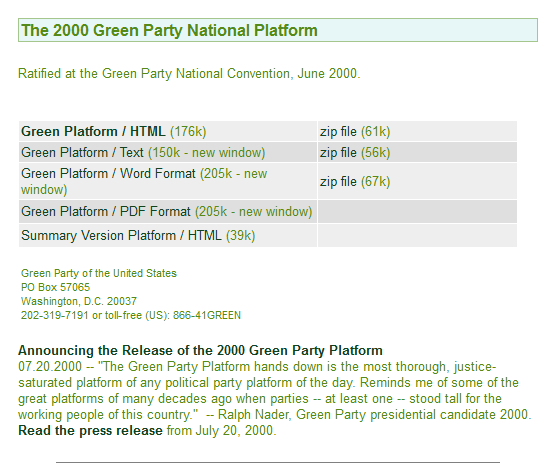Environmental full-cost accounting: Difference between revisions
Siterunner (talk | contribs) No edit summary |
Siterunner (talk | contribs) No edit summary |
||
| Line 1: | Line 1: | ||
[[File:Green Politics s.png]] | |||
[http://en.wikipedia.org/wiki/Environmental_full-cost_accounting '''"Environmental full-cost accounting"'''] | [http://en.wikipedia.org/wiki/Environmental_full-cost_accounting '''"Environmental full-cost accounting"'''] | ||
Revision as of 18:03, 13 December 2014
"Environmental full-cost accounting"
[Wikipedia] Environmental full-cost accounting (EFCA) is a method of cost accounting that traces direct costs and allocates indirect costs[1] by collecting and presenting information about the possible environmental, social and economic costs and benefits or advantages – in short, about the "triple bottom line" – for each proposed alternative. It is also known as true-cost accounting (TCA), but, as definitions for "true" and "full" are inherently subjective, experts consider both terms problematic.
Since costs and advantages are usually considered in terms of environmental, economic and social impacts, full or true cost efforts are collectively called the "triple bottom line". A large number of standards now exist in this area including Ecological Footprint, eco-labels, and the United Nations International Council for Local Environmental Initiatives approach to triple bottom line using the ecoBudget metric...
Because of this evolution of terminology in public sector use especially, the term full-cost accounting is now more commonly used in management accounting, e.g. infrastructure management and finance. Use of the terms FCA or TCA usually indicate relatively conservative extensions of current management practices, and incremental improvements to GAAP to deal with waste output or resource input...
-=-=-=-=-=-=-=-=-=-=-
[Wikipedia] In economics, an externality is the cost or benefit that affects a party who did not choose to incur that cost or benefit.
For example, manufacturing activities that cause air pollution impose health and clean-up costs on the whole society, whereas the neighbors of an individual who chooses to fire-proof his home may benefit from a reduced risk of a fire spreading to their own houses. If external costs exist, such as pollution, the producer may choose to produce more of the product than would be produced if the producer were required to pay all associated environmental costs. If there are external benefits, such as in public safety, less of the good may be produced than would be the case if the producer were to receive payment for the external benefits to others. For the purpose of these statements, overall cost and benefit to society is defined as the sum of the imputed monetary value of benefits and costs to all parties involved.
Thus, unregulated markets in goods or services with significant externalities generate prices that do not reflect the full social cost or benefit of their transactions; such markets are therefore inefficient.
-=-=-=-=-=-=-=-=-=-=-
Steven Schmidt:
In the Green Party Platform of the US, as I was drafting in the mid-1990's, the thought was to find a way to deal with the economic problem of hidden costs of production. True-cost/full-cost pricing and accounting was a foundation concept on which we developed green ideas to deal with a wide-spectrum of environmental challenges.
The smog in Los Angeles, for example, which in the 1950's when I was a child was as bad as any city had profound consequences on health, especially children's health. The costs were significant and real, generational as the reduced lung capacity and in-air particulates led to a host of medical conditions. The beginnings of the US green movement in law and practice can be traced to this era and the subsequent foundation of environmental laws in California and the US.
As an extension of this work, the founding Green Party Platform of the US offered special attention to the problem of 'externalities' in the focus on full-cost/true-cost accounting as a method to move toward 'smart' and sustainable eco-nomic growth.
"'TRUE-COST PRICING', which reflects the 'realistic' cost of products including ecological damage and externalities caused during the manufacturing process, must be adopted to achieve accurate financial accounting. Only with a shift in the way we are seeing, can we accurately assess our energy choices and costs – and the long-term impacts of the energy decisions we are making."
Greens support a major redesign of commerce. We endorse 'true-cost pricing'.
Sustaining our quality of life, eco-nomic prosperity, environmental health, and long-term survival demands that we adopt new ways of doing business. Greens support a definition of sustainability where we openly examine the economy as a part of the ecosystem, not as an isolated subset in which nothing but “resources” come in and products and waste go out and never the economy and the real world shall meet.
The issues of damaging growth, as a result of ill-considered development, are many but clearly the need for smarter, greener ways to bring quality of life, security and progress are the challenge of our times.
Founding US Green Party Platform - 2000

